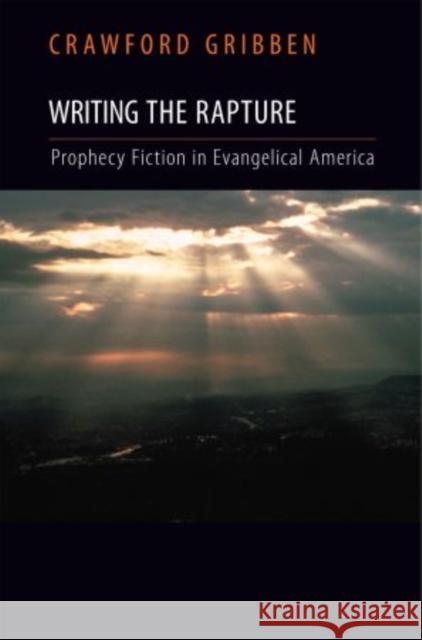Writing the Rapture: Prophecy Fiction in Evangelical America » książka
Writing the Rapture: Prophecy Fiction in Evangelical America
ISBN-13: 9780195326604 / Angielski / Twarda / 2009 / 272 str.
For the past twenty years, evangelical prophecy novels have been a powerful presence on American bestseller lists. Emerging from a growing conservative culture industry, the genre dramatizes events that many believers expect to occur at the end of the age - the rapture of the saved, the rise of the Antichrist, and the fearful tribulation faced by those who are "left behind."
Seeking the forces that drove the unexpected success of the Left Behind novels, Crawford Gribben traces the gradual development of the prophecy fiction genre from its eclectic roots among early twentieth-century fundamentalists. The first rapture novels came onto the scene at the high water mark of Protestant America. From there, the genre would both witness the defeat of conservative Protestantism and participate in its eventual reconstruction and return, providing for the renaissance of the evangelical imagination that would culminate in the Left Behind novels.
Yet, as Gribben shows, the rapture genre, while vividly expressing some prototypically American themes, also serves to greatly complicate the idea of American modernity-assaulting some of its most cherished tenets. Gribben concludes with a look at "post-Left Behind" rapture fiction, noting some works that were written specifically to counter the claims of the best-selling series. Along the way, he gives attention not just to literary fictions, but to rapture films and apocalyptic themes in Christian music. Writing the Rapture is an indispensable guide to this flourishing yet little understood body of literature.











